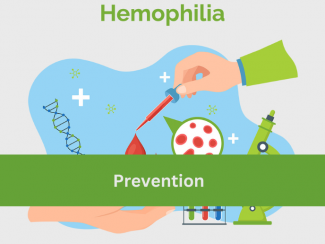Lupus is a chronic, autoimmune disease that can damage any part of the body (skin, joints, and/or organs inside the body). Chronic means that the signs and symptoms tend to last longer than six weeks and often for many years. Lupus affects about 5 in 10,000 people. Most often, lupus starts in people in their 20s and 30s. It occurs 10 times more often in women than in men.

As signs and symptoms vary considerably from person to person, there is no single diagnostic test that can confirm lupus. In addition, signs and symptoms tend to change over time and are similar to those of other disorders and diseases. These fluctuations in disease activity make lupus extremely challenging to diagnose.
The doctor may suggest some of the following:
- Complete blood count (CBC) to detect anaemia, low platelet count, and low white blood cell count.
- Antibody tests that includes antinuclear antibody (ANA) assay. ANA is a type of antibody directed against the cell’s nuclei. ANA is present in nearly everybody with active lupus. Doctors often use the ANA test as a screening tool.
- Erythrocyte sedimentation rate (ESR) to determine the rate at which red blood cells settle to the bottom of a tube in an hour. Rates faster than normal may indicate lupus or another systemic disease, inflammatory condition, or infection.
- Kidney and liver assessment to look for certain enzymes and albumin
- Urinalysis to measure protein levels or red blood cells in the urine
- Syphilis test to determine if anti-phospholipid antibodies are in the blood. Antiphospholipid antibodies are directed against phosphorus-fat components of your cell membranes called phospholipids, certain blood proteins that bind with phospholipids, and the complexes formed when proteins and phospholipids bind.
Approximately 50% of people with lupus possess these antibodies. Occasionally, antiphospholipid antibody testing may be ordered to help determine the cause of a positive VDRL/RPR test for syphilis. The reagents used to test for syphilis contain phospholipids and can cause a false-positive result in those with antiphospholipid antibodies.
Community
Condition









